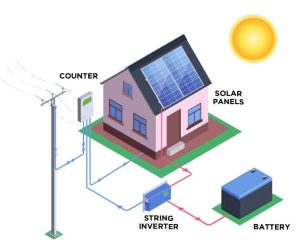Does Higher Wattage Mean Better Performance?
In the world of electronics and energy, wattage is a term that often comes up in discussions about efficiency and performance. Whether we're talking about light bulbs, solar panels, or electronic devices, the question remains: does higher wattage necessarily equate to better performance? This article delves into the nuances of wattage and its impact on performance across various applications.

Understanding Wattage
Wattage is a measure of electrical power and represents the rate at which energy is consumed or produced by a device. In simple terms, a watt is a unit that combines volts (electrical pressure) and amps (current) to determine how much energy a device uses or generates over time. For example, a device that uses 100 watts consumes 100 joules of energy per second.
Lighting: Brightness vs. Energy Consumption
In lighting, wattage traditionally indicated the brightness of a bulb. However, with the advent of energy-efficient LED and CFL bulbs, this correlation no longer holds true. Modern bulbs produce far more lumens (a measure of brightness) per watt than their incandescent predecessors. Therefore, a higher wattage doesn't necessarily mean a brighter light, just higher energy consumption. In this case, efficiency is better measured by lumens per watt, not wattage alone.
Solar Panels: Power Output and Efficiency
When it comes to solar panels, wattage represents the potential power output under ideal conditions. Higher wattage panels can generate more electricity, but the key to performance lies in efficiency—the panel's ability to convert sunlight into usable energy. Two panels may have the same wattage, but the one with higher efficiency will perform better in less-than-ideal conditions, such as low light or partial shading.
Electronics: The Balance of Power and Efficiency
For electronic devices, higher wattage often indicates higher performance capabilities, especially in appliances like microwaves or power tools. However, higher wattage also means higher energy consumption, which isn't always synonymous with efficiency. In computers, for instance, a higher-wattage power supply can handle more components, but it doesn't inherently make the computer faster—it simply supports more powerful hardware.
The Efficiency Factor
The question of whether is higher wattage better cannot be answered without considering efficiency. Efficiency is a measure of how well a device uses power to perform its function. A high-wattage device that wastes a lot of energy as heat, for example, is less efficient than a lower-wattage device that uses most of its power for its intended purpose.
Making Informed Choices
When assessing the performance of a device or energy solution, it's crucial to look beyond wattage. Consider what the wattage represents in terms of energy consumption, power output, and efficiency. In many cases, a lower-wattage option may provide the same or better performance as a higher-wattage counterpart, particularly when newer technologies are involved.
In conclusion, while wattage is an important factor in understanding the potential of a device or energy system, it is not the sole determinant of performance. Efficiency, energy consumption, and the specific requirements of the application all play critical roles in determining the best choice. Higher wattage may offer more power, but without considering efficiency and the specific needs of your situation, it's not necessarily better.